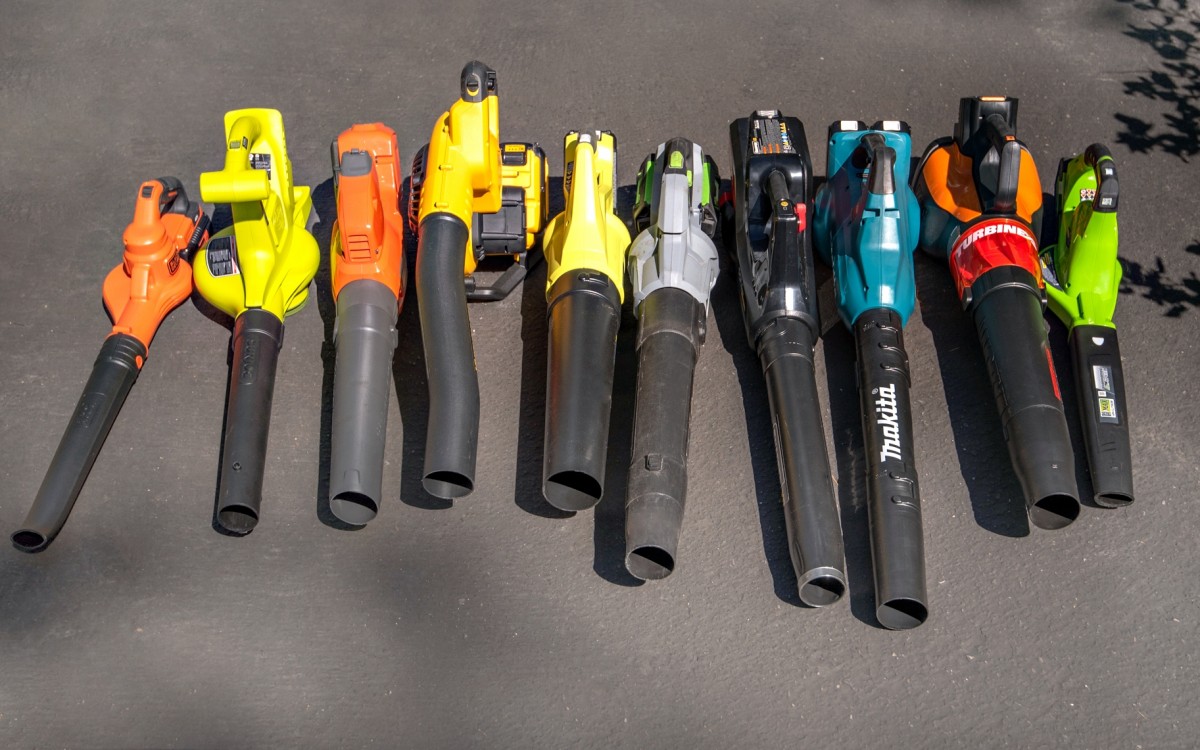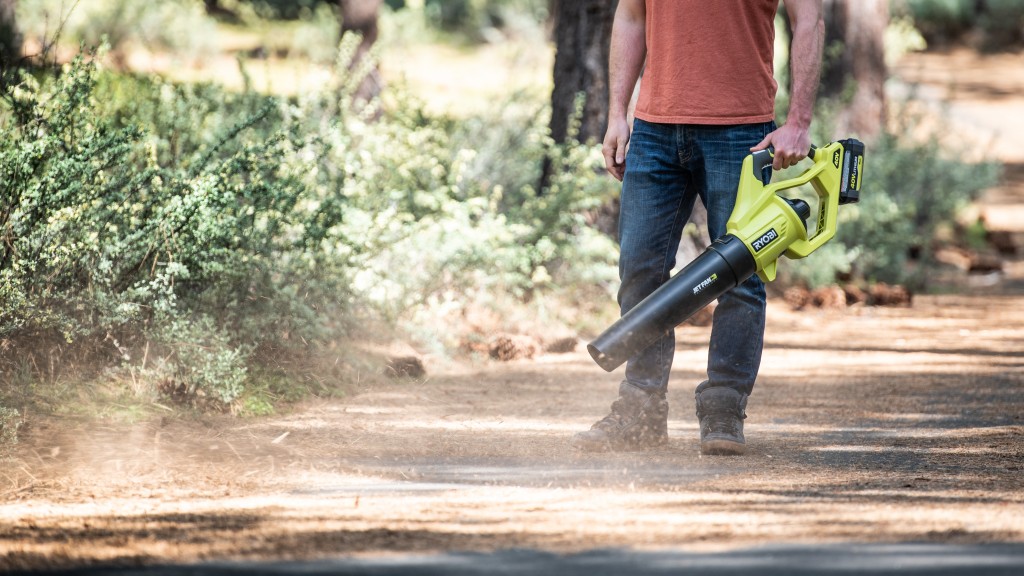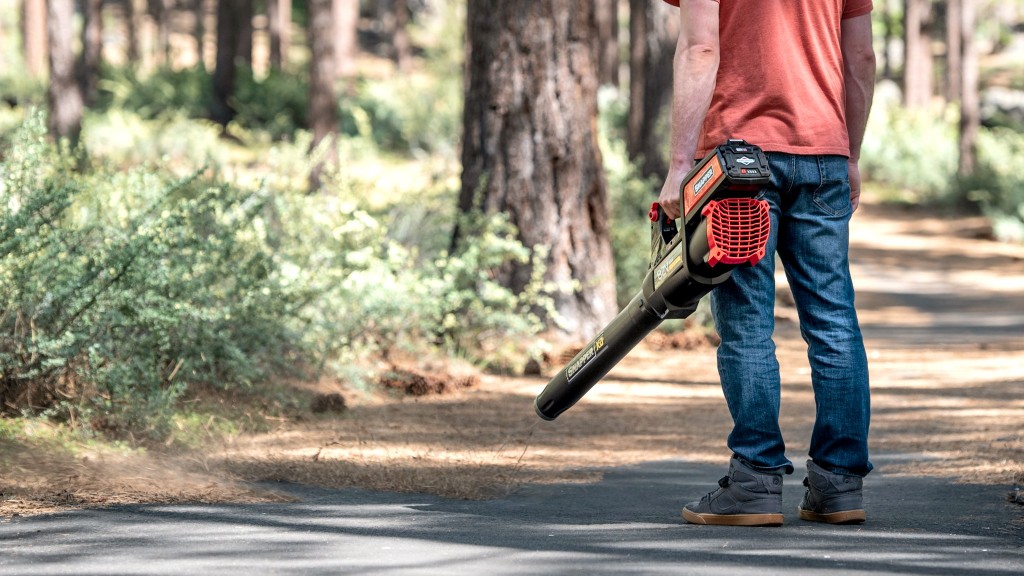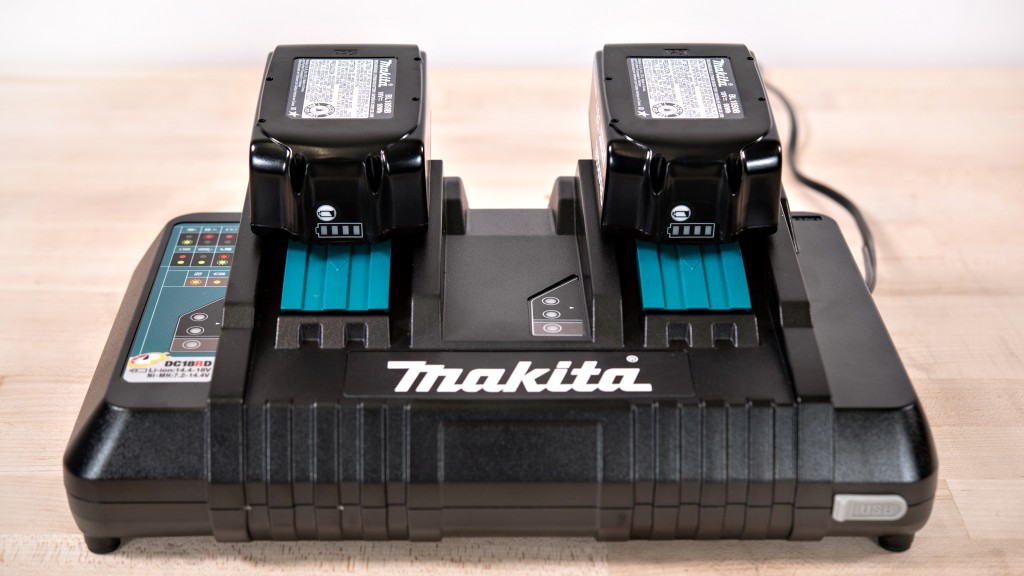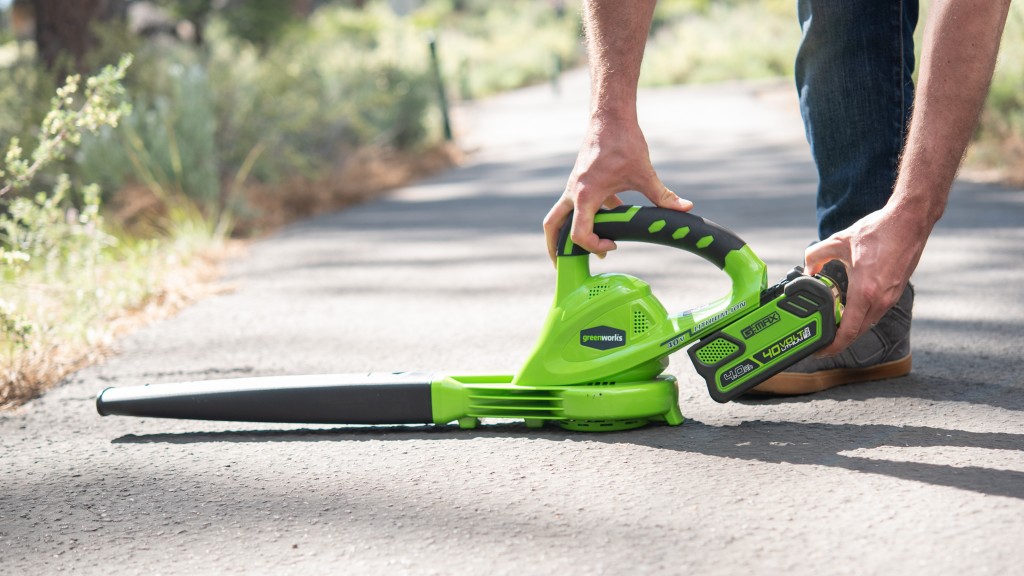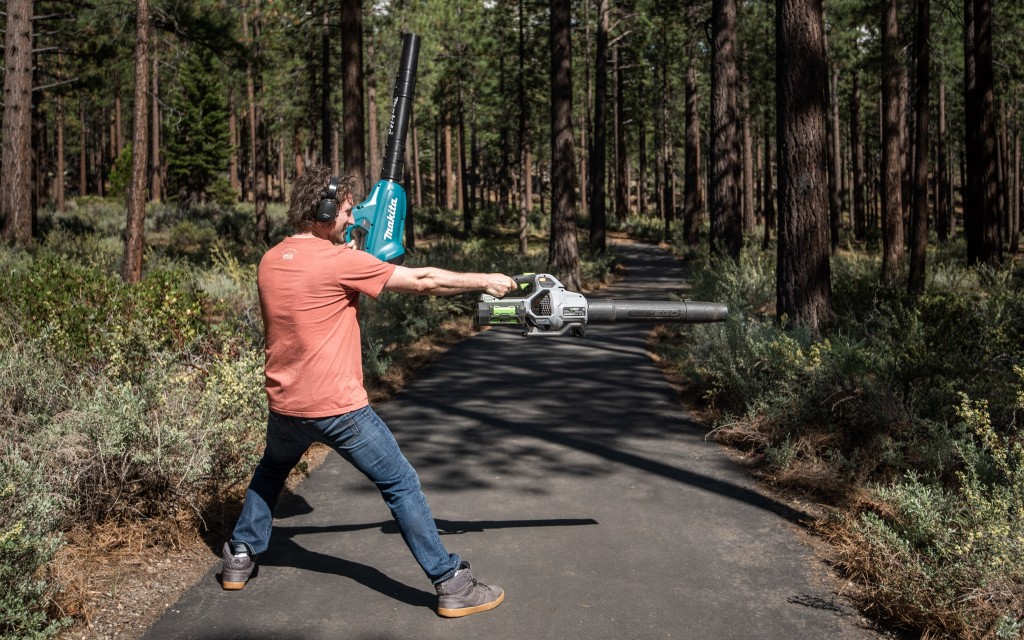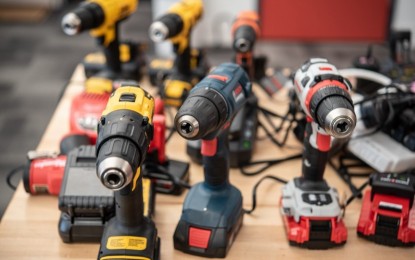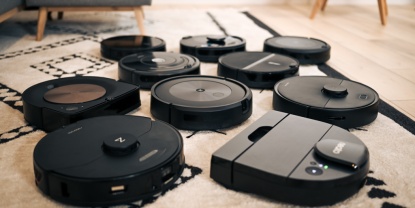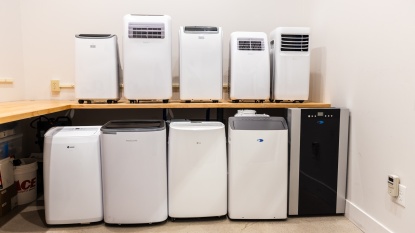Having a hard time deciding which leaf blower is the right one for you? Whether you are looking for a heavy-duty workhorse that can clear tons of leaves without a fuss or a budget model to sweep a small porch, we have you covered. We break down the different types of blowers available, their pros and cons, and what to watch out for when picking a new one. Keep reading to see our comprehensive leaf blower buying guide or check out our complete leaf blower review to see which products we thought performed the best.
Types of Leaf Blowers
From a burly gasoline-powered model suitable for clearing entire golf courses to a budget 18-volt model that can do little more than blow leaves out of your entryway, there is a different type of leaf blower for almost every application, with practically every product falling into one of three categories.
Gas-Powered
Usually the most powerful of the three types of leaf blowers, gas-powered models are best suited for commercial or extremely heavy-duty work, making them much more blower than a typical homeowner needs. These units are usually backpack blowers, pairing the additional power with significantly more weight and noise than a cordless or corded blower. Gas-powered blowers also require significantly more maintenance than electric blowers, requiring you to monitor and change oil level, spark plugs, and all the other things that go along with gasoline engines. Unless you run a landscaping business or manage large tracts of land, a gas-powered blower is probably going to be overkill. On top of that, some of these models tend to be quite a bit more expensive than their electric counterparts.
Corded
While gas-powered blowers are usually the most powerful leaf blowers, they may not hold that distinction for long. Both corded and cordless leaf blowers are catching up due to the advances in electric motor design, packing plenty of punch in a much more compact and quieter package. Corded leaf blowers come in either backpack or handheld styles and are much lighter and less noisy than gasoline-powered models. These products are a good option if you know you will need them operating for extended periods of time, as you have essentially unlimited runtime. Unfortunately, this unlimited runtime comes through a cord, which can become an enormous hassle. The extension cord required to operate most of these blowers seems to get tangled or hung up on absolutely everything, meaning that you can honestly spend just as much time untangling a cord as actually clearing leaves or pine needles.
Cordless
Finally, this leaves cordless leaf blowers, which are the main focus of our review and have come along so far in recent years, that we recommend cordless as the right type of leaf blower for most people. These products rely on compact lithium batteries, so they pack a surprising amount of power in a very portable package, with some of the larger models even holding their own against corded models. On top of that — and the main reason we recommend cordless leaf blowers for most people — this type of leaf blower is by far the easiest and most convenient to use. True, you don't have unlimited runtime but we feel this is more than made up by the fact that it's incredibly nice to just grab the leaf blower and get to work without a ton of setup.
Step 1: Is a Cordless Blower Really the Right Choice?
While cordless leaf blowers are our favorites and we are confident that these are the right choice for the vast majority of people, they definitely aren't the best choice for 100% of users. The biggest limitation for a cordless leaf blower is the runtime and thus the amount of area that you can effectively clear. However, you can still clear a relatively sizeable area with these products. In our experience, we found that we could routinely clear a 2500-3000 sq. ft. parking lot on a single battery with the mid to upper-tier cordless leaf blowers, which should be more than enough for most typical homeowners.
We found the convenience factor more than made up for the limited range. These products are much quieter than gas-powered models, take significantly less maintenance, and you will be ready to cut the cord after the first few times of untangling a corded model. However, you may notice that all cordless blowers are not created equal and you will want to find the cordless model that best matches your needs, bringing us to the next section.
Step 2: What Voltage is Best? What Type of Battery Should You Buy?
One of the first things you will notice advertised on a cordless blower is its nominal operating voltage. Battery voltage varies throughout operating and charge level, so don't be too surprised if you pull out a multimeter and find out that your 82-volt blower is only reading 77 or 78 volts — take our word for it and don't try measuring it at home, it's a good way to damage the battery or void your warranty.
Speaking of the batteries, you should definitely only consider a model that has newer lithium batteries, the exact chemistry may vary (lithium-ion, lithium-polymer, etc) but it definitely should have lithium somewhere in there. The vast majority of cordless blowers are all lithium and you would actually be hard-pressed to find one that runs on older Ni-Cad or NiMH batteries, but if you did manage to find one, we would recommend against buying it.
Even after you have narrowed down your search to a lithium battery powered model, you will notice that there is a wide range of voltages, with some running on as little as 20 volts and others running on more than 80 volts. This corresponds roughly with overall power and performance, with all of our top models running on over 40 volts. If you have significant areas to sweep and consistent amounts of debris to clear, we would advise getting one of the higher voltage models. If you only are going to use your cordless blower for a light mess here and there, then you would probably be fine with a lower voltage model, which may even share a battery with some of your existing power tools, bringing us to the next purchasing consideration.
Step 3: Hoping to Pair with Your Existing Power Tools?
Unfortunately, you are probably going to find it to be a bit difficult if you are hoping to use the same battery power system across all of your cordless tools. Most handheld cordless power tools run on 12-volt to 24-volt systems and their corresponding compatible cordless leaf blowers are significantly weaker than the products we tested — bad enough to get them cut from the review before we even completed testing. The higher voltage batteries that run the best blowers are too large for most handheld tools, so most people are going to be stuck with running one battery line for their cordless yard tools and another for their handheld tools. However, a few brands — Makita comes to mind — have figured out a clever workaround for this issue. Their cordless yard tools use multiple batteries to get the higher power required, allowing you to have the same battery system across all your tools.
This shouldn't factor too much into your purchase decision, but it is a nice thing to check if you are deciding between one or two models, as it is always a plus to be able to use the same batteries in multiple tools, giving you more bang for the buck and reducing unnecessary chargers.
Conclusion
At this point, you should have all the tools necessary to find the perfect leaf blower for your needs and budget. Hopefully, this guide has been helpful to your quest to find the perfect product. If you are curious about which blowers we thought bested the rest, then you may want to consult our comprehensive Leaf Blower Review to see which one is the absolute best of the best, which is the most powerful, and which ones you should consider when shopping on a tighter budget.

